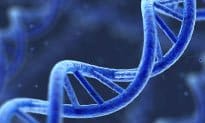NHS England issues genomics tender
- 31 July 2014

NHS England has issued an invitation to tender for organisations wanting to become genomic centres for its project to sequence 100,000 genomes.
The project, which was launched by health secretary Jeremy Hunt in June last year, will sequence human genomes and link these to electronic patient records.
EHI reported earlier this month that the commissioning board aims to have the 100,000 genome sequences done by the end of 2017 and expects to select five genomics centres in the first wave of the project.
NHS England has now issued its invitation to tender, which says a key criteria will be the ability to “commence delivering services by 1 January 2015.”
The first wave is split into two stages, the first is a pre-qualification exercise to allow NHS England to assess the applicants’ previous experience.
“In the second stage, applicants will be asked to respond to a draft contract and detailed specification in addition to other relevant information,” says the invitation to tender document.
“Based on the results of the second stage of this procurement process, NHS England intends to award contracts for wave one to a minimum of five applicants.”
The 100K Genome project is led by a new arm’s length organisation called Genomics England, which is owned and funded by the Department of Health.
NHS England is responsible a number of “deliverables” on the project, including identifying, collecting and supplying high quality samples for the project, ensuring “clinical advocacy” and developing an “effective clinician and patient feedback mechanism.”
Organisations wanting to apply to become a genomics centre must describe its capabilities in delivering services to patients with rare inherited diseases and cancer, “both acting on and incorporating genomic information in their clinical care,” says the document.
They must also be able to supply samples and “clinical information phenotypic data”.
“Collected samples from recruited patients will only progress to sequencing when the full phenotypic dataset is supplied,” adds the document.
“Applicants will need to provide information about the source of the data and the integrated informatics that demonstrates that they have the capacity and capability to deliver against the diseases and/or conditions.”
They must also say whether the information is currently stored in paper or electronic format and how it would improve the quality of data, storage and its linkage.
Tissue and blood samples will be collected both for DNA extraction “and to enable other ‘omic investigations to be performed such as transcriptomics and proteomics.”
“An understanding of the applicant's experience to coordinate, collect, process and store a range of samples, for this purpose will need to be provided including from distributed sites and/or institutions if a partnership approach is proposed,” says the document.
“DNA extraction will be undertaken in a hybrid model, both within NHS Genomic Medicine Centres when desired and quality criteria have been shown to be met, otherwise being performed in a central bio repository.”
Patient consent for the project will have to be obtained locally by the genomics centres.
Interested parties have until 29 august to submit stage one applications.




